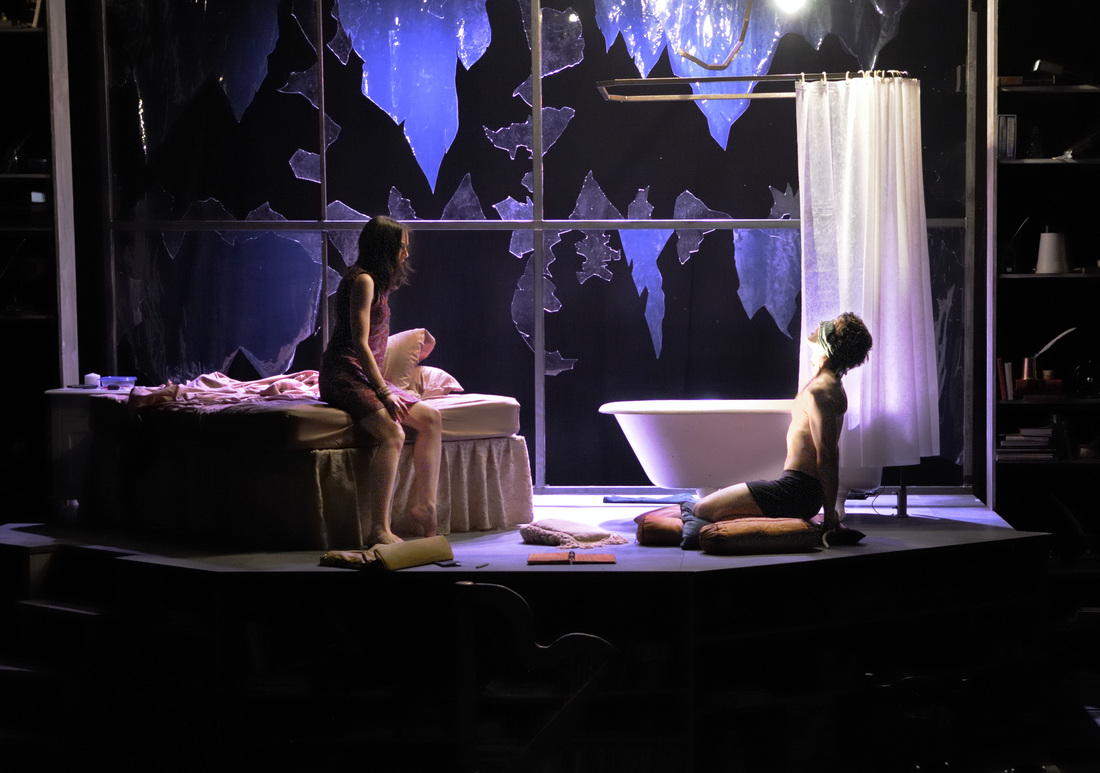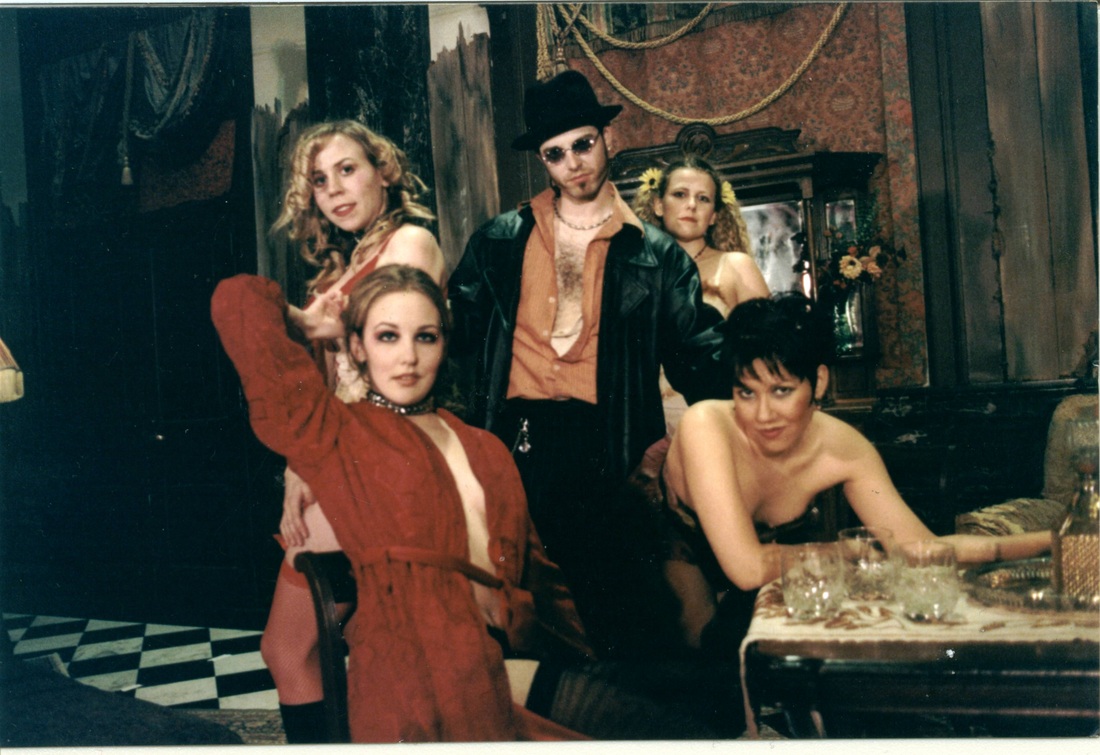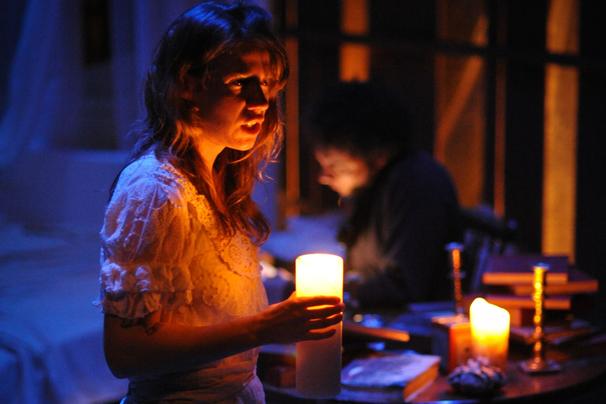|
JACQUELINE LAWTON: Why did you decide to get into theatre? Was there someone or a particular show that inspired you?
JENNY MCCONNELL FREDERICK: I think it was an accumulation of experiences--dance competitions, drama classes, elementary school field trips (to Folger and Arena Stage), high school productions, directing for the first time. I think I fell in love with the magic of it at a really early age. The way a theatre smells. The change in the air when an audience fills that space. That wonderful tension watching the action from backstage. The theatre’s transportive powers. I just loved everything about being in that kind of sacred space. JL: How long have you served as Artistic Director at your company? What drew you to the position? What keeps you there? JMF: I co-founded Rorschach Theatre in the summer of 1999 along with my co-Artistic Director Randy Baker. I was 22 and we wanted to make our own work and to take charge of that work from top to bottom. What keeps me there? I believe in what Rorschach has to say. Over 14 years the company has come a really long way in finding its voice--in knowing who we are and what we want to bring to theatre as a whole--but that evolution never ends. Everyday is different, every challenge is different and it’s daunting and exhausting but it's incredibly rewarding too. (Before I was a parent, I used to say having a theatre company is like having a kid--and now that I have a kid--it really is similar--less cheerios in theatre, but a lot of that same exhilaration/anxiety cocktail.) JL: What is the most valuable lesson you learned during your tenure? Also, what skills and traits do you feel a successful artistic director should have to support the health and growth of an organization? JMF: There are so many things I’ve learned. One of the most important I think is having a sense of when to listen to others and when to trust in yourself. It’s a delicate balance--and it’s different with every choice. And it’s not an easy lesson to learn when you’re running a largely volunteer organization with your peers. You want everyone to feel like they’re being heard. Other skills and traits I think are important: vision, patience, ambition, and a really wide bandwidth for multi-tasking. JL: What excites you most about being an Artistic Director? What is your greatest challenge? JMF: I love the depth and breadth of the experience. At any theatre, but especially in a small one, there’s an opportunity to touch on every aspect of the process. And as much as I love directing work for my own company, there’s something really satisfying about stepping back and watching the other incredibly smart artists come into our (metaphorical) doors and make work in the Rorschach aesthetic. The greatest challenge: Personally, I think is balance. Balancing the art with the administrative. Balancing the company with life and family. Tangibly, it’s money. There’s never enough. Less tangibly, I think it’s just being really relentless about the companies continued evolution--allowing it to grow and change while still staying true to it’s mission. JL: If your work as an artistic director doesn’t pay the bills, what else do you do? Also, how do you balance your role leading an organization with your work as a director? Are you ever able to direct outside of your company? JMF: My “day job” is Director of Performing Arts at CulturalDC where I produce Source Festival and run the Mead Theatre Lab. It’s hardly fair to apply the potentially disparaging “day job” moniker to my work at CulturalDC though. It’s an amazing place that provides hundreds of opportunities to visual and performing artists every year. I think the balance between my work at CulturalDC and at Rorschach ends up being really mutually beneficial--for me and for both companies. As for balance--it’s hard. Everyday is a juggling act of priorities--but I feel really lucky to be able to do both. That said, it doesn’t leave a lot time for directing outside. I’d love to, it’s just not something I’ve ever really pursued. JL: Looking at your body of work as an artistic director and a director, how conscious are you and selecting plays by women or people of color when deciding your season? Also, when it comes to hiring administrators, designers and other directors do you take race and gender into consideration? JMF: To be totally honest, it’s not something we discuss at Rorschach. We’ve prioritized our company’s subjective aesthetics as the primary tool for decision making--does the script/artist fit our company’s mission? With that approach, roughly 30% of the scripts we’ve produced and 54% of our directors have been women or people of color. We’re much less concerned with gender and race and much more concerned about whether an artist bleeds Rorschach blood. JL: DC audiences are … JMF: Smart, supportive and opinionated. JL: DC actors and designers are … JMF: Savvy, creative, resourceful...and overworked and underpaid. JL: DC playwrights are .. JMF: Ambitious. There’s so much great drive right now to make DC known as a vibrant playwrights’ town and all the attention is well deserved. JL: DC critics are … JMF: Really smart, (most of them), really supportive of theatre in DC, and not to be praised or condemned any more than any other audience member. JL: What advice do you have for an up and coming theatre artists who have just moved to D.C.? JMF: Do it all. Try it all. Find your voice. Ask for help when you need it. JL: What's next for you as a director and your company? JMF: First up is Source Festival 2013 in June which is going to be amazing! (We’ll be announcing the line-up in the next week or so.) Then I’m directing Neil Gaiman’s NEVERWHERE for Rorschach in August. It’s huge and amazing and very very Rorschach.
0 Comments
Your comment will be posted after it is approved.
Leave a Reply. |
My BlogI'm a playwright, dramaturg, and teaching artist. It is here where you'll find my queries and musings on life, theater and the world. My posts advocate for diversity, inclusion, and equity in the American Theatre and updates on my own work. Please enjoy!
Categories
All
Archives
June 2020
Reading List
|



